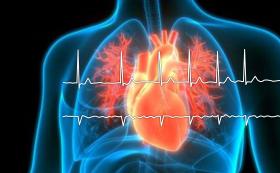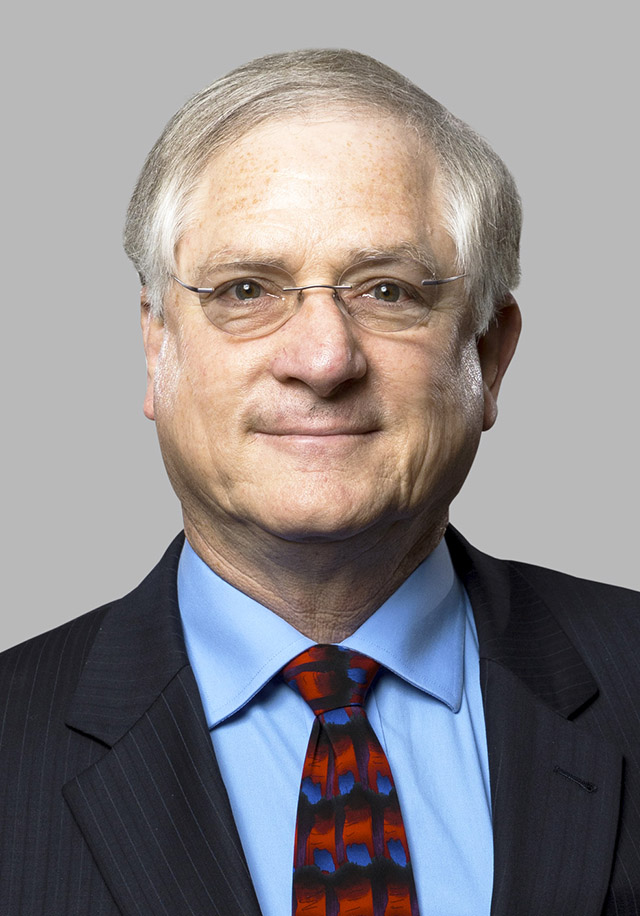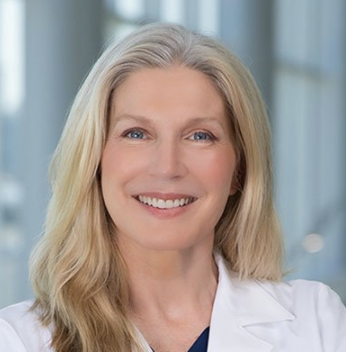
The Dr. Robert S. and Joyce Pate Capper Heart Symposium

Target Audience
This symposium is for physicians, physician assistants, advanced practice nurses, registered nurses and other allied health professionals in the following specialties: cardiovascular, critical care medicine, emergency medicine, family medicine, geriatric, hospitalist, internal medicine, primary care and vascular surgery.
Learning Objectives
Atrial Fibrillation: Rate Versus Rhythm Control
• Discuss prevalence and complications of atrial fibrillation
• Review when and why to pursue a rhythm control strategy
• Describe lifestyle changes that reduce atrial fibrillation burden
• Discuss atrial fibrillation ablation and post op care
Strokes and Atrial Fibrillation: Detection, Burden and Protection
• Review historical data linking atrial fibrillation with stroke risk
• Discuss atrial fibrillation stroke risk and bleed risk scores: CHADS2-VASc and HAS_BLED
• Recognize atrial fibrillation detection from personal devices to implantable loop monitors
• Review AHA/ACC/HRS atrial fibrillation stroke prevention guidelines
• Discuss benefits and risks of systemic anticoagulation and mechanical left atrial appendance closure/removal
• Describe the limited role of aspirin in stroke reduction in patients with atrial fibrillation
• Communicate with patients and families in a responsive and responsible manner to prevent strokes in those with atrial fibrillation and high-risk factors
Advanced Heart Failure in 2022
• Discuss standard of care for patients with chronic heart failure
• Recognize simple clinical clues to identify patients with advanced heart failure
• Discuss expected natural history of patients with advanced heart failure
• Review key takeaways from AHA Scientific Statement from 10/2021 about timely and appropriate referral of patients with advanced heart failure
• Discuss how care of patients with advanced heart failure can be improved through team-based care
• Explain how implicit bias may impact decision making regarding referral of patients with advanced heart failure for LVAD/heart transplantation
Contemporary Approach to Mechanical Circulatory Support and Heart Transplant: When, How, Which and Why?
• Identify best practices and strategies regarding mechanical circulatory support and transplant for patients with advanced heart failure
• Review treatment decision making and collaboration between all members of a patient’s care team
• Discuss a patient-centered approach toward strategizing for optimal long-term survival

John E. Willard, M.D., FACC | Program Chair; Cardiologist | Texas Health Harris Methodist Hospital Fort Worth; Texas Health Heart and Vascular Specialists; Texas Health Physicians Group
John Willard, M.D., was born in Fredonia, Kan., and received his Bachelor of Science with honors in biology from Emporia State University in Kansas. He received his medical degree with honors from Tulane University in New Orleans, where he was a member of the Alpha Omega Alpha medical honor society. He completed training in internal medicine and cardiovascular disease at the University of Texas Southwestern Medical Center at Dallas, with additional training in interventional cardiology.
He is board-certified in internal medicine and cardiovascular disease, with added qualifications in adult interventional cardiology. He is also a fellow of the American College of Cardiology.
Willard served on the faculty of the Cardiovascular Division at UT Southwestern for five years, and authored numerous research articles in the field of interventional cardiology. He joined Consultants in Cardiology in 1996. His clinical interests include management of chronic ischemic heart disease, congestive heart failure, valvular heart disease, maternal heart disease during pregnancy, and coronary and peripheral vascular percutaneous revascularization. He serves on the Texas Health Resources Board for Quality and Performance, the Board for Cardiovascular Services, and the Heart and Vascular Council. He and his wife have a combined family of six children. He enjoys cooking, photography and family time.

Mark Drazner, M.D., M.Sc. | President, HFSA; Clinical Chief of Cardiology; James M. Wooten Chair in Cardiology | UT Southwestern Medical Center
Mark H. Drazner, MD, MSc received his medical education at Washington University in St. Louis. He subsequently completed an Internal Medicine residency at UT Southwestern including serving as Chief Resident. He completed a cardiology fellowship at Duke University Medical Center followed by a Cardiomyopathy/Transplant Cardiology fellowship at Brigham and Women’s Hospital. He subsequently received a Master of Science in Epidemiology from the Harvard School of Public Health.
He returned to UT Southwestern in 1997, later served as the Medical Director of the Advanced Heart Failure/LVAD/Transplant section, and presently is Professor with tenure, the Clinical Chief of Cardiology, and holds the James M. Wooten Chair in Cardiology. He has served on several writing committees for the AHA/ACC Guidelines for the Management of Heart Failure. He was the inaugural recipient of the L. David Hillis Award for Excellence in Teaching from the UT Southwestern Cardiology Fellowship program and in 2018 received the Laennec Master Clinician Award from the AHA. In 2020 he received the Patricia and William L. Watson Jr., M.D. Award for Excellence in Clinical Medicine, the highest honor in clinical care bestowed by UT Southwestern Medical Center.
He currently is the President of the Heart Failure Society of America.

Maryjane Farr, M.D., M.Sc., FACC, FAST | Professor of Medicine; Section Chief, Heart Failure, VAD and Transplant; Medical Director, VAD and Heart Transplant Programs | UT Southwestern Medical Center
Maryjane Farr, M.D., joined the UT Southwestern Medical Center in September 2021, as Professor of Medicine and Section Chief of Heart Failure, Mechanical Circulatory Support and Transplant. Previously she was the Irene and Sidney B. Silverman Associate Professor of Medicine and Medical Director of the Adult Heart Transplant Program at Columbia University Irving Medical Center.
Dr. Farr is a graduate of Barnard College, Columbia University (BA'89), Columbia College of Physicians & Surgeons, AOA ('98) and the Columbia Mailman School of Public Health (MSc'12). Dr. Farr trained in Internal Medicine, Cardiovascular Diseases and Advanced Heart Failure and Transplant at the New York Presbyterian Hospital and joined the staff in 2005.
Dr. Farr was Director of Clinical Trials in Heart Failure and Transplant at Columbia from 2007-12, received an NIH training grant for her Master's degree from 2010-12 and was awarded the Shorin Silverstein Research in Transplant Award (at Columbia) for 2012-14.
Dr. Farr directed the Columbia Adult Heart Transplant Program for 6 years, and during her 14 years on the team participated in the management of nearly 1000 new heart transplant recipients.
She has authored more than 100 peer-reviewed manuscripts in the field of heart failure, mechanical circulatory support, and transplant. She has participated in scholarly work and education with the ACC, AHA, HFSA, ISHLT, and AST. She has been an active member and leader at UNOS/OPTN on the Thoracic Committee, as Heart Subcommittee Chair, on the Membership and Professional Standards Committee, as Region 9 (New York) Associate Councilor, and was recently appointed to the UNOS/OPTN Board of Directors (2021). She is the Chair of the Conflict of Interest Committee for the ISHLT and she is an Associate Editor of Transplantation and Content Editor at Circulation.
Her key areas of interest are organ allocation, primary graft failure, complications of mechanical circulatory support as bridge to transplant, and overall survival of patients with advanced heart failure.
Nitin Kulkarni, M.D. | Cardiac Electrophysiologist | Texas Health Harris Methodist Hospital Fort Worth | Texas Health Heart and Vascular Specialists | Texas Health Physicians Group
Dr. Nitin Kulkarni grew up in northeastern North Carolina, but has called North Texas home since 2013. He is board-certified in internal medicine, cardiology, and cardiac electrophysiology, and fellowship-trained in cardiology and cardiac electrophysiology.
Dr. Kulkarni earned his medical degree from Boston University School of Medicine, where he was inducted into the Alpha Omega Alpha medical honor society in 2010. He completed his internal medicine internship and residency at Mount Sinai Hospital in New York City before making his way to Texas. He received his fellowship training at The University of Texas Southwestern Medical Center in Dallas.
At the completion of his fellowship training, , Dr. Kulkarni was honored with the Jo Ann McWhorter Award for embodying integrity, leadership and excellence in medicine. Upon graduation, he was recruited to stay on as faculty as Assistant Professor of Internal Medicine in the Division of Cardiology at UT Southwestern. During his tenure, he had the pleasure of taking care of our nation’s veterans at the Dallas Veteran’s Affairs Medical Center, and mentoring medical students, internal medicine residents, and cardiology fellows.
Dr. Kulkarni’s areas of special focus as a clinician, researcher and teacher is in the treatment of patients with heart rhythm disorders, such as supraventricular tachycardia, atrial flutter, atrial fibrillation, and ventricular tachycardia. In addition to performing cardiac ablation procedures for the management of these conditions, he also has expertise in implanting pacemakers, implantable cardiac defibrillators, and cardiac resynchronization devices. He has written and spoke on a variety of topics in electrophysiology, including the treatment of atrial fibrillation, the evaluation of syncope, and the management of patients with pacemakers and defibrillators.
Dr. Kulkarni is a member of the American College of Cardiology and Heart Rhythm Society.

Theodore Takata, M.D., FACC, FHRS | Cardiac Electrophysiologist; Director, Cardiac EP Services | Texas Health Harris Methodist Hospital Fort Worth | Texas Health Heart and Vascular Specialists | Texas Health Physicians Group
Theodore Takata, M.D., was born in Takoma Park, Md. He received his Bachelor of Arts degree in English literature with honors, and Bachelor of Science in zoology, from the University of Maryland at College Park. He was a member of Sigma Tau Delta, Phi Sigma Society, and the General Honors curriculum program.
He received his medical degree from the University of Maryland School of Medicine in Baltimore and completed his training in internal medicine at Case Western Reserve’s University Hospitals of Cleveland. He completed his training in cardiovascular disease at the University of Texas Southwestern Medical Center in Dallas, and remained there for subspecialty training in cardiac electrophysiology.
Takata joined Consultants in Cardiology in 2002. His clinical specialization encompasses the diagnosis and treatment of complex cardiac arrhythmias. His expertise includes knowledge and application of radiofrequency and point cryo catheter ablation, use of three-dimensional computer mapping systems, and atrial fibrillation ablation. In 2011, Takata performed one of the first cryoballoon ablations for atrial fibrillation in North Texas. He also specializes in the implantation and management of pacemaker and implantable cardiac defibrillators (ICDs), including cardiac resynchronization pacing devices (biventricular pacing), as well as with ICD and pacemaker lead extraction and device removal.
In addition to time spent in the care of patients, Takata devotes time to investigational clinical research and student mentorship. Clinical research has included investigation of novel oral anticoagulation agents, new antiarrhythmic medications for both life-threatening ventricular arrhythmias and atrial fibrillation, investigational cardiac pacing products such as the first MRI compatible pacemaker, and emergency antidotes for the novel oral anticoagulation agents. He has also mentored medical students for the University of North Texas Health Science Center in clinical research and clinical practice.
Takata is an avid road cyclist, gadget and computer enthusiast. He enjoys traveling, cooking and photography.
Available Credit
- 3.50 AAPA Category 1 CME credit
Texas Health Resources has been authorized by the American Academy of PAs (AAPA) to award AAPA Category 1 CME credit for activities planned in accordance with AAPA CME Criteria.
This activity is designated for 3.50 AAPA Category 1 CME credit(s). PAs should only claim credit commensurate with the extent of their participation.- 2.00 Ethics Credit(s)
- 3.50 ACPE Credit(s)
In support of improving patient care, Texas Health Resources is jointly accredited by the Accreditation Council for Continuing Medical Education (ACCME), the Accreditation Council for Pharmacy Education (ACPE), and the American Nurses Credentialing Center (ANCC) to provide continuing education for the healthcare team.
Texas Health Resources designates this knowledge-based activity for 3.50 ACPE Credit(s). Joint Accreditation Universal Activity Number: JA4008216-0000-22-003-L01-P- 2.00 Ethics Credit(s)
- 3.50 AMA PRA Category 1 Credit™
In support of improving patient care, Texas Health Resources is jointly accredited by the Accreditation Council for Continuing Medical Education (ACCME), the Accreditation Council for Pharmacy Education (ACPE), and the American Nurses Credentialing Center (ANCC) to provide continuing education for the healthcare team.
The Texas Health Resources designates this live activity for a maximum of 3.50 AMA PRA Category 1 Credit™. Physicians should claim only the credit commensurate with the extent of their participation in the activity.- 2.00 Ethics Credit(s)
- 3.50 Attendance
- 2.00 Ethics Credit(s)
- 3.50 Nursing Contact Hour(s)In support of improving patient care, Texas Health Resources is jointly accredited by the Accreditation Council for Continuing Medical Education (ACCME), the Accreditation Council for Pharmacy Education (ACPE), and the American Nurses Credentialing Center (ANCC) to provide continuing education for the healthcare team.
- 2.00 Ethics Credit(s)
- 3.00 Radiologic Technologist Category A CE Credit(s)This activity has been approved for 3.00 category A CE credit(s) by the American Society of Radiologic Technologists.
- 2.00 Ethics Credit(s)

 Facebook
Facebook X
X LinkedIn
LinkedIn Forward
Forward